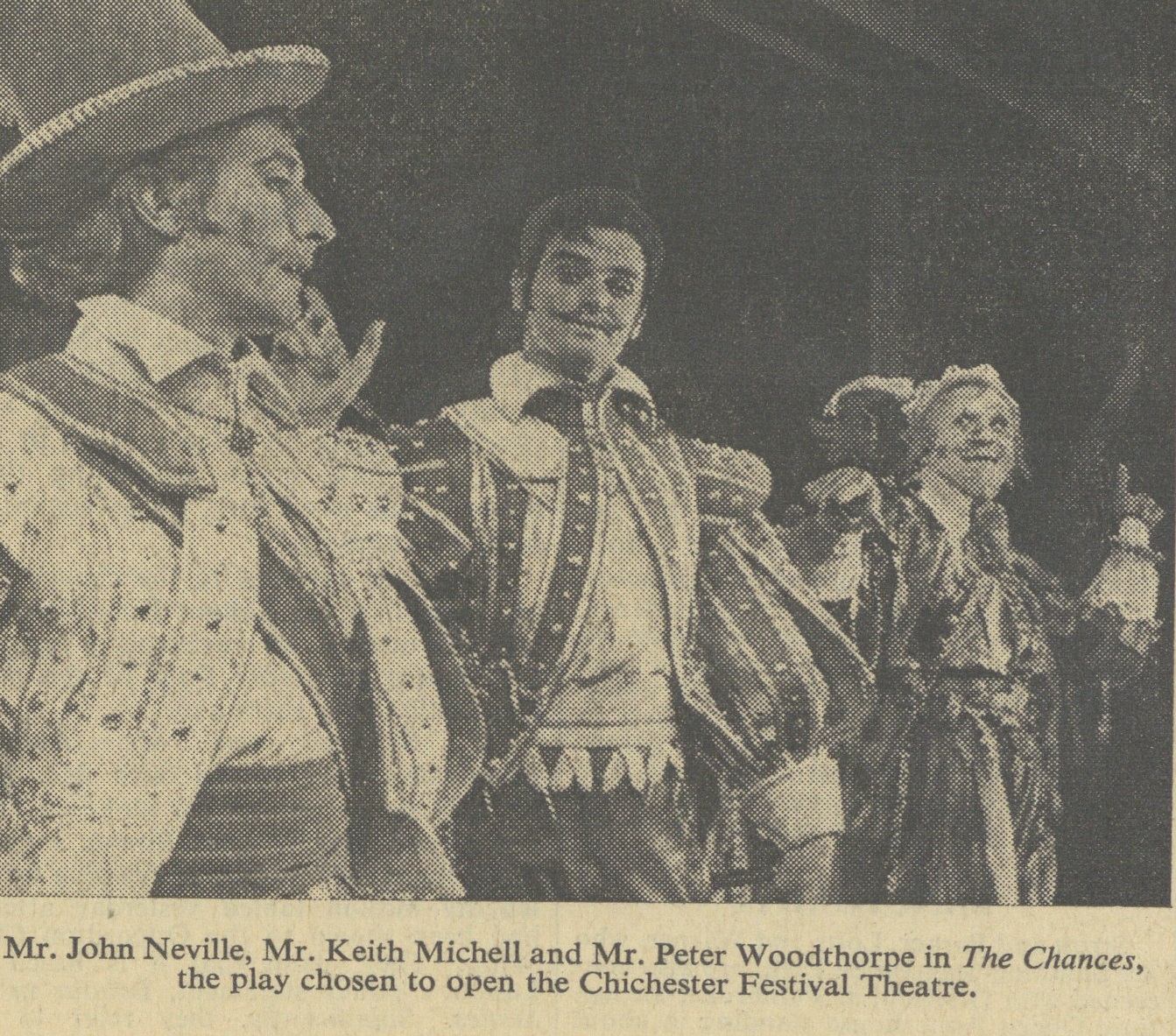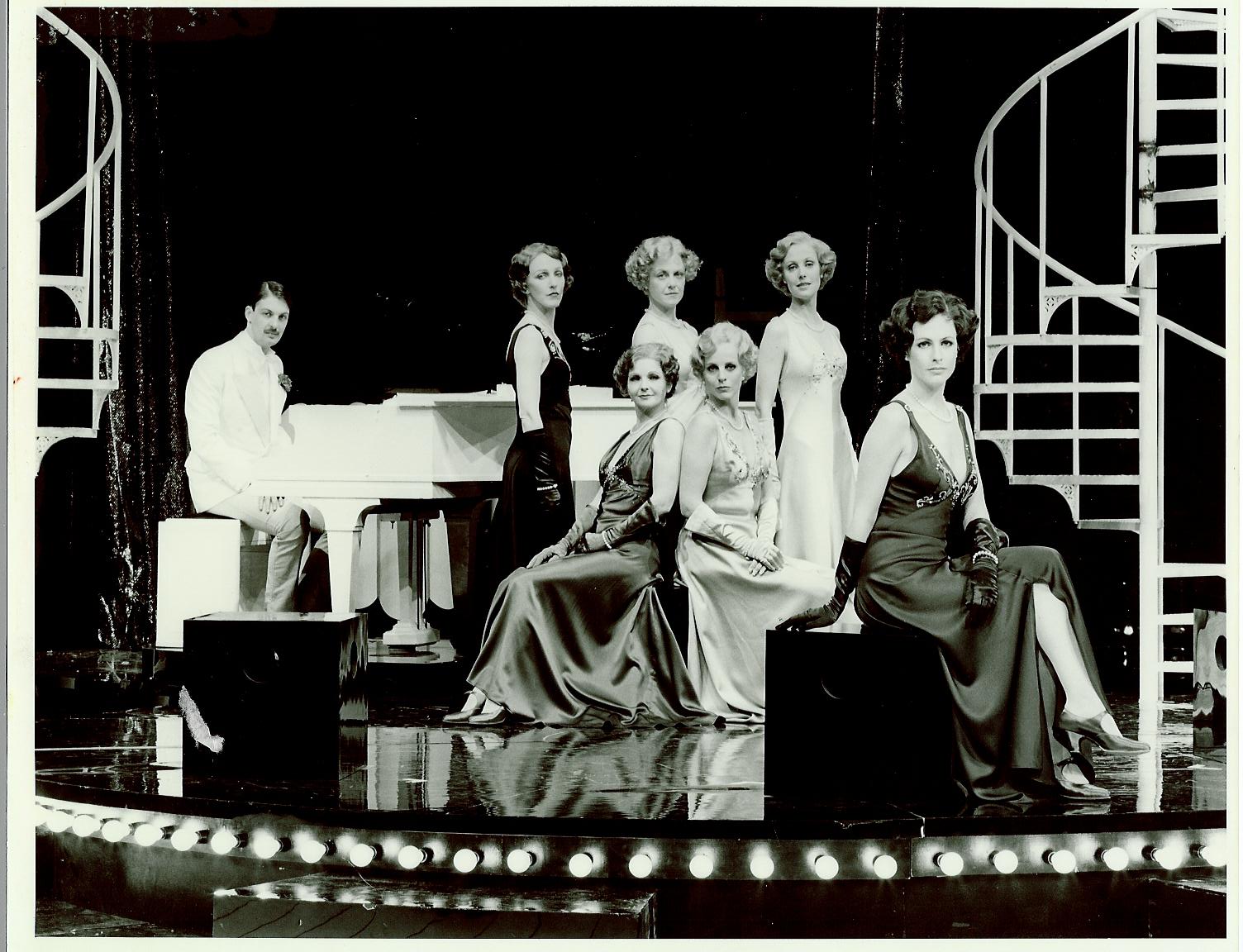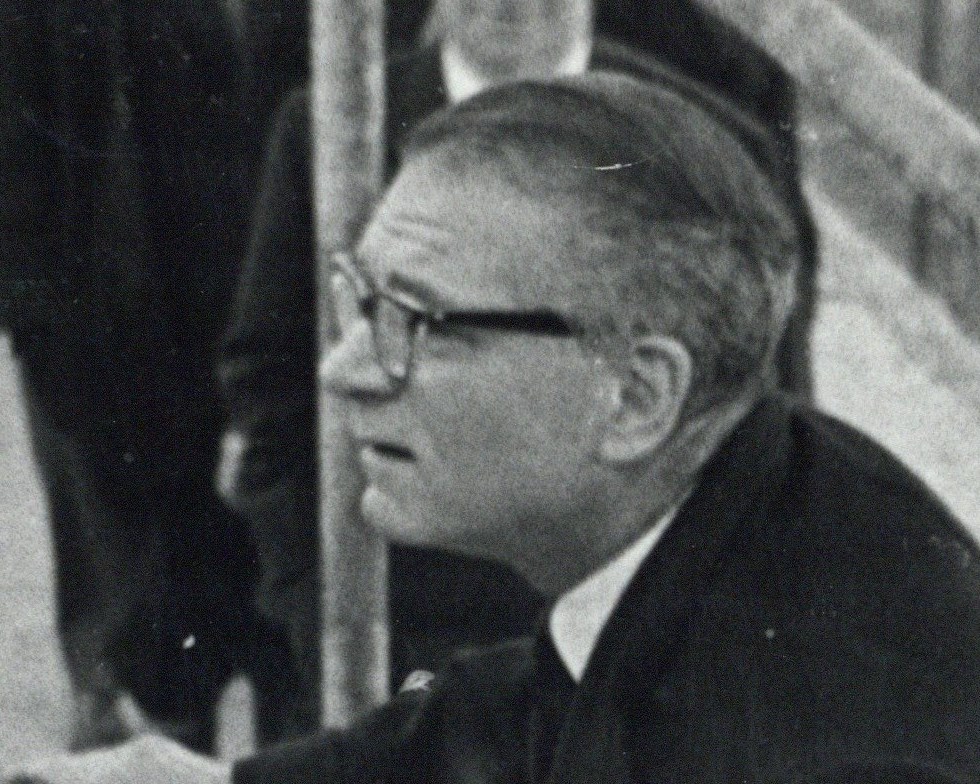The turbulent political climate of the 1970s was felt at Chichester Festival Theatre as early in the decade as 1971. Amidst the IRA bombing campaign, Princess Alexandra, who had performed the foundation stone ceremony some ten years earlier, was attending a performance of the The Rivals when a phone call was received tipping staff off about an explosive inside the Theatre. John Clements himself came on-stage to announce the need to evacuate. Luckily, no bomb was found and the show went on.
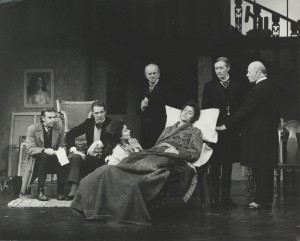
The 1972 season saw the first full-length musical to be presented at Chichester. John Gaye’s The Beggar’s Opera opened, followed by George Bernard Shaw’s The Doctor’s Dilemma, a play about the moral dilemmas faced by those in the medical profession. In an unfortunate case of life mirroring art, it was a production dampened by illness. During the run there were as many as five understudies on the stage at one time.
Clements’ Final Season:
As well as being John Clements’ final season, 1973 was particularly memorable as it saw the first ever female director at Chichester Festival Theatre. Wendy Toye’s first production here was a musical version of R Loves J, which was enjoyed by audiences. She would later direct eight Festival Theatre productions in the years following her 1973 debut.
John Clements saw out his final season with a hugely successful production of Dandy Dick, which transferred to the Garrick Theatre in London.
Keith Michell:
Keith Michell arrived in 1974 to the backdrop of a three day week, two general elections, strikes due to a deep financial crisis and the continuation of the IRA bombing campaign. As a natural result of Britain’s crisis – Keith Michell’s time as Artistic Director would not be easy.
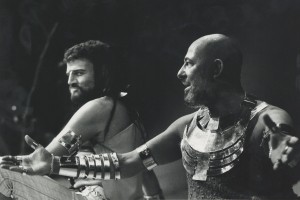
The first season of Michell’s run included Oedipus Tyrannus and Pirandello’s Tonight We Improvise. The latter, opening with a fifteen minute monologue, did not sell many tickets nor did it receive the critical approval one might have hoped. The last play of the season, A Month in the Country, received excellent reviews and Dorothy Tutin was particularly praised. She was later awarded Actress of the Year in the Evening Standard Theatre Awards for her performance.
In 1976 Keith Michell embarked on a project called New Ventures – the aim of which was to find and help nurture new talent. Giving opportunities to younger actors cast in the Festival season, New Ventures also allowed backstage staff and crew to develop their skills. The project ultimately led to the creation of the Minerva Theatre in the 1980’s.
The 1977 production of The Apple Cart also stands out as a high point in the Theatre’s history. Starring Penelope Keith, who was widely recognised as next door neighbour Margot in the BBC sitcom The Good Life, this was an excellent example of Michell’s skill for getting big stars to perform at the Theatre. The 1977 season also saw Queen Elizabeth II’s Silver Jubilee and on 12 June Princess Alexandra attended the Theatre once more for a gala, which following the threats of 1971, featured a very heavy police presence.
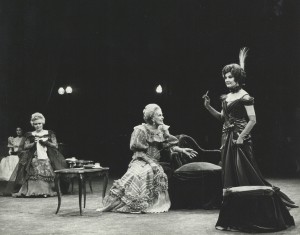
In 1978, Michell’s successor was announced as Peter Dews, who would go on to direct three seasons at Chichester Festival Theatre. Dews’ first Festival was a big success featuring a reprisal of Oscar Wilde’s A Woman of No Importance and Noël Coward’s Look After Lulu, starring Peter Bowles and Fenella Fielding.
Holly Stewart is currently studying History at the University of Chichester



